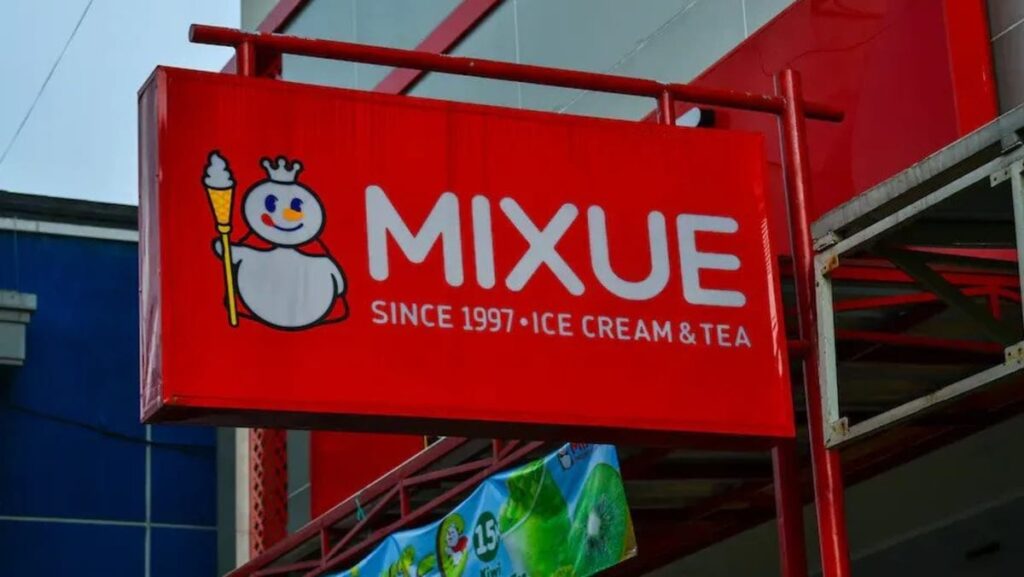Franchisees in local markets bid for franchise outlets from the master franchise holder: for instance, the franchisee is PT Mitra Adiperkasa (MAP) for Starbucks Indonesia. This model is more exclusive and arguably caters to middle and upper-income segments in urban markets.
Meanwhile, mainland Chinese F&B firms offer a low-cost franchise model, extending their reach to non-urban areas. This model disrupts the traditional model, which requires high initial capital and can be highly exclusive.
With an initial capital of less than US$40,000, a Mixue franchise business is accessible to many aspiring entrepreneurs in the region.
Among the incoming mainland Chinese F&B brands, Mixue is arguably the fastest-growing in terms of the number of outlets in Southeast Asia. Founded by Chinese businessman Zhang Hongchao in the late 1990s, Mixue first entered Southeast Asia via Vietnam in 2018 and Indonesia in 2020.
Expansion into other Southeast Asian markets has been more modest, but sharp growth has occurred in economies with relatively lower income per capita and a significant young population (Vietnam and Indonesia).
Its growth in Indonesia has been striking – in the first two years, Mixue opened 317 stores; within four years, this exceeded 2,000. In Vietnam, Mixue opened approximately 1,000 stores in five years.
SIGNIFICANT BARRIERS
Initially, mainland Chinese F&B firms sought to enter developed countries’ markets but encountered significant barriers. Regulatory complexity, stringent food safety standards, higher entry costs, and the presence of well-established local and multinational brands hindered the Chinese firms’ penetration into developed markets, like Australia, South Korea and Japan.
Read the full article here

